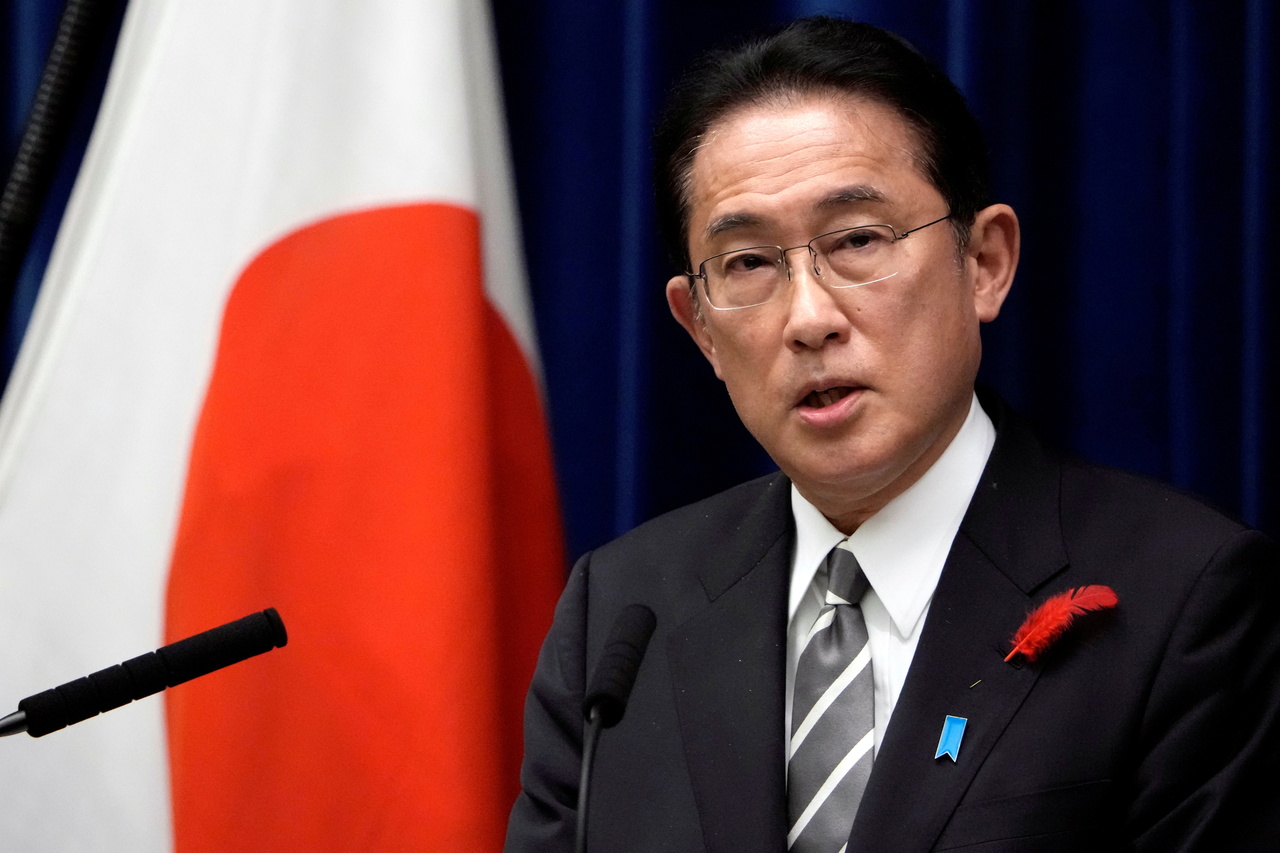Japan PM Kishida's govt set to approve record economic stimulus package
Sign up now: Get ST's newsletters delivered to your inbox

The package reflects Japanese PM Fumio Kishida's aim to create a "new style of Japanese capitalism".
PHOTO: REUTERS
Follow topic:
TOKYO - Japanese Prime Minister Fumio Kishida's government is set to approve a record economic stimulus package worth 55.7 trillion yen (S$662 billion), reports said on Thursday (Nov 18), as the country prepares for a possible sixth wave of Covid-19 infections.
The measure, which may be approved as soon as Friday, includes spending to beef up the response to Covid-19. The overall cost of the package, including private-sector funding, will come up to 78.9 trillion yen.
Some 500 billion yen will be allocated to such measures as vaccine development, while front-line medical workers, nurses, nursery and kindergarten teachers as well as welfare workers can expect a pay rise of up to 12,000 yen a month.
Mr Kishida will also devote more money for additional hospital beds, expand the availability of polymerase chain reaction tests and ensure the smooth delivery of vaccines and booster shots, which are available for free to all residents in Japan.
The package reflects the new prime minister's aim to implement his much-vaunted plan to create a "new style of Japanese capitalism" while managing Covid-19 risks.
Its size is nearly double the 30 trillion yen that Mr Kishida promised over the past two months - first during his bid to become leader of the ruling Liberal Democratic Party (LDP) and then in a Lower House election.
The plan will pile on the fiscal pressure in Japan, which already has the worst debt-to-gross domestic product ratio among advanced economies. Top Finance Ministry bureaucrat Koji Yano had, in October, in an unusually outspoken commentary, slammed politicians for spending as if Japan's coffers were a bottomless pit.
Still, part of the package is targeted at areas where the country's response has been found wanting in previous Covid-19 waves that prompted prolonged and repeated declarations of a state of emergency.
It comes amid a lull in cases, with 163 reported nationwide on Thursday. Tokyo, the bustling capital with 14 million people, recorded just 20 infections in what was the 33rd straight day of fewer than 50 cases daily.
By comparison, Japan hit a one-day high of 25,992 cases on Aug 20, while Tokyo set a daily peak of 5,908 cases on Aug 13. That experience - where doctors were stretched to the point where Covid-19 patients were left to die at home - has given Mr Kishida cause to beef up the healthcare system.
Still, the abrupt turnaround in the Covid-19 situation has left experts flummoxed.
One theory making the rounds, ironically, has attributed the drop in cases to Japan's belated start for vaccinations which began only in February. The campaign picked up speed around July, and research has shown that vaccines have an efficacy period of between six and eight months.
Some 75.7 per cent of the population has received two doses as at Thursday, with 91.2 per cent of seniors aged 65 and above fully vaccinated.
Japan has not begun administering booster shots, which will be made available for free to the public up to eight months after their second jab.

Front-line medical workers are among those who can expect a pay rise of up to 12,000 yen a month.
PHOTO: POOL
An artificial intelligence system developed by Dr Akimasa Hirata from the Nagoya Institute of Technology has predicted that a sixth Covid-19 wave may hit around late-January.
In an effort to stave off that prospect, Mr Kishida is also acting to expand free polymerase chain reaction (PCR) testing, which thus far have been made available only to symptomatic patients. A study this month showed that Tokyo might have had four times as many Covid-19 patients than the 120,000 officially reported as at March.
He is also aiming to set aside 37,000 hospital beds for Covid-19 patients by the end of this month, which is 30 per cent more than that available during the August peak.
Other planned economic measures include a uniform 100,000-yen cash handout to minors aged 18 and below, to help families weather the pain inflicted by Covid-19.
Travel subsidies will also be doled out under the domestic Go To Travel campaign, which has been on a hiatus since last December and will likely restart early next year.

